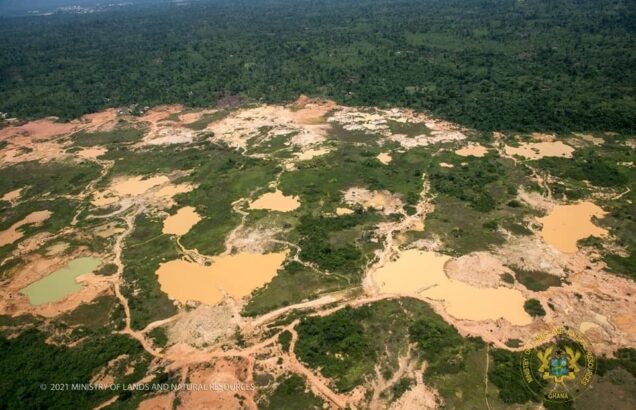The Ghana Institute of Geoscientists (GhiG) has attributed the surge in illegal mining activities (galamsey) to political interference and influences from high-ranking officials.
The institute has criticized these individuals for hindering the fight against galamsey, a significant environmental issue in Ghana.
GhiG categorized galamsey into three groups: illegal and irresponsible, legal but irresponsible, and legal and responsible.
However, the institute emphasized that the environmental degradation challenges are exacerbated by a lack of political will and interference from high-ranking officials seeking short-term political gains.
Additionally, GhiG highlighted the compromise of traditional rulers and local authorities due to financial incentives from mining interests and the lack of professional expertise in mining practices.
The institute also pointed out the inefficiencies of state institutions, such as the Minerals Commission, EPA, Water Resources Commission, and Regional/District Assemblies, in enforcing laws and regulations.
To address the situation, GhiG proposed a comprehensive approach, including a ban on all small-scale mining in forest reserves, rivers, streams, and water bodies.
They also recommended a temporary six-month ban on all small-scale gold mining activities outside these areas to reset the system and implement necessary reforms.
Furthermore, the institute suggested the formation of a joint monitoring and evaluation team comprising representatives from the Minerals Commission, EPA, and the District Security Committee.
GhiG believes that these measures would restore the integrity of Ghana’s small-scale mining industry and protect critical water bodies and forest reserves.


